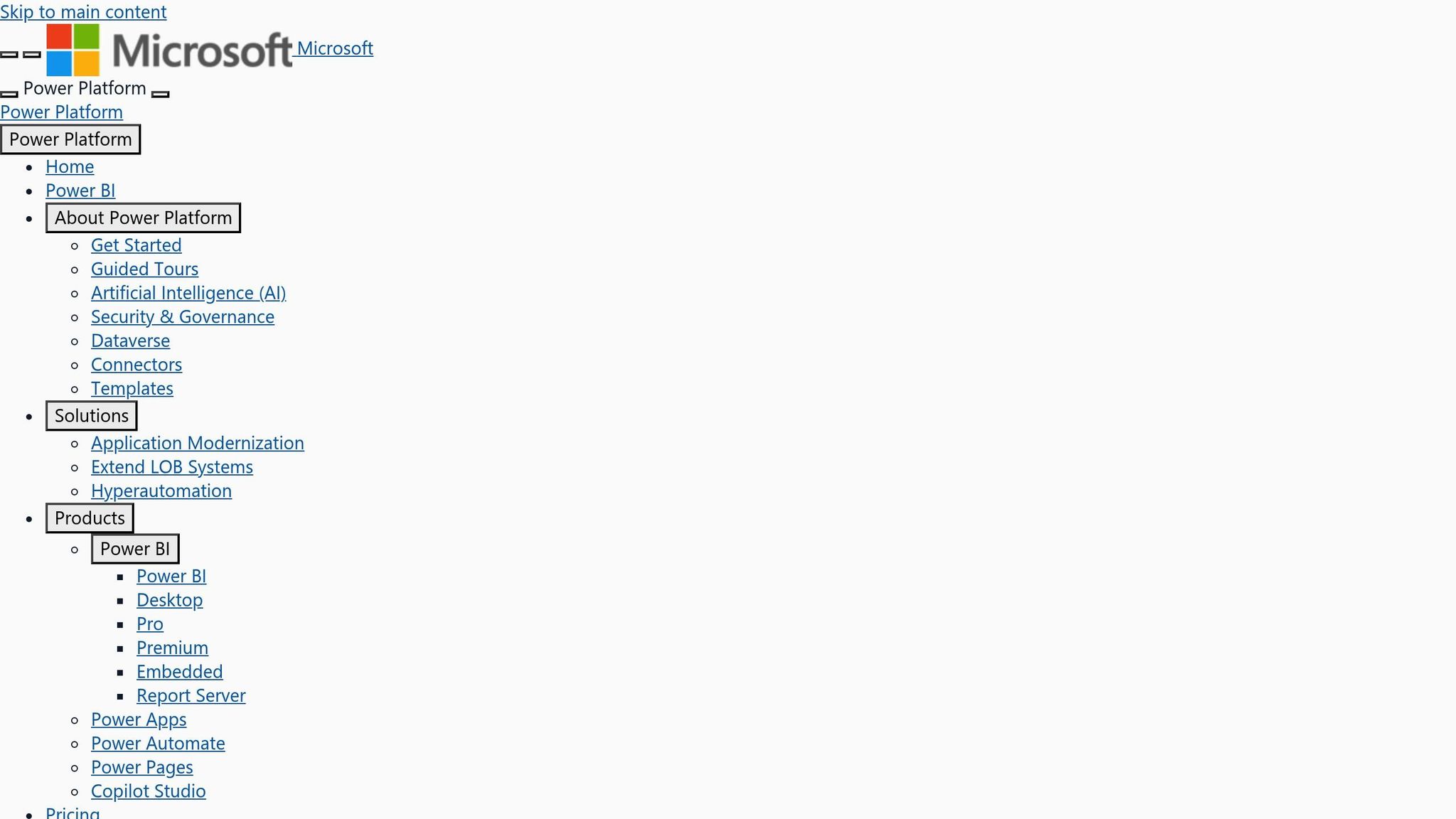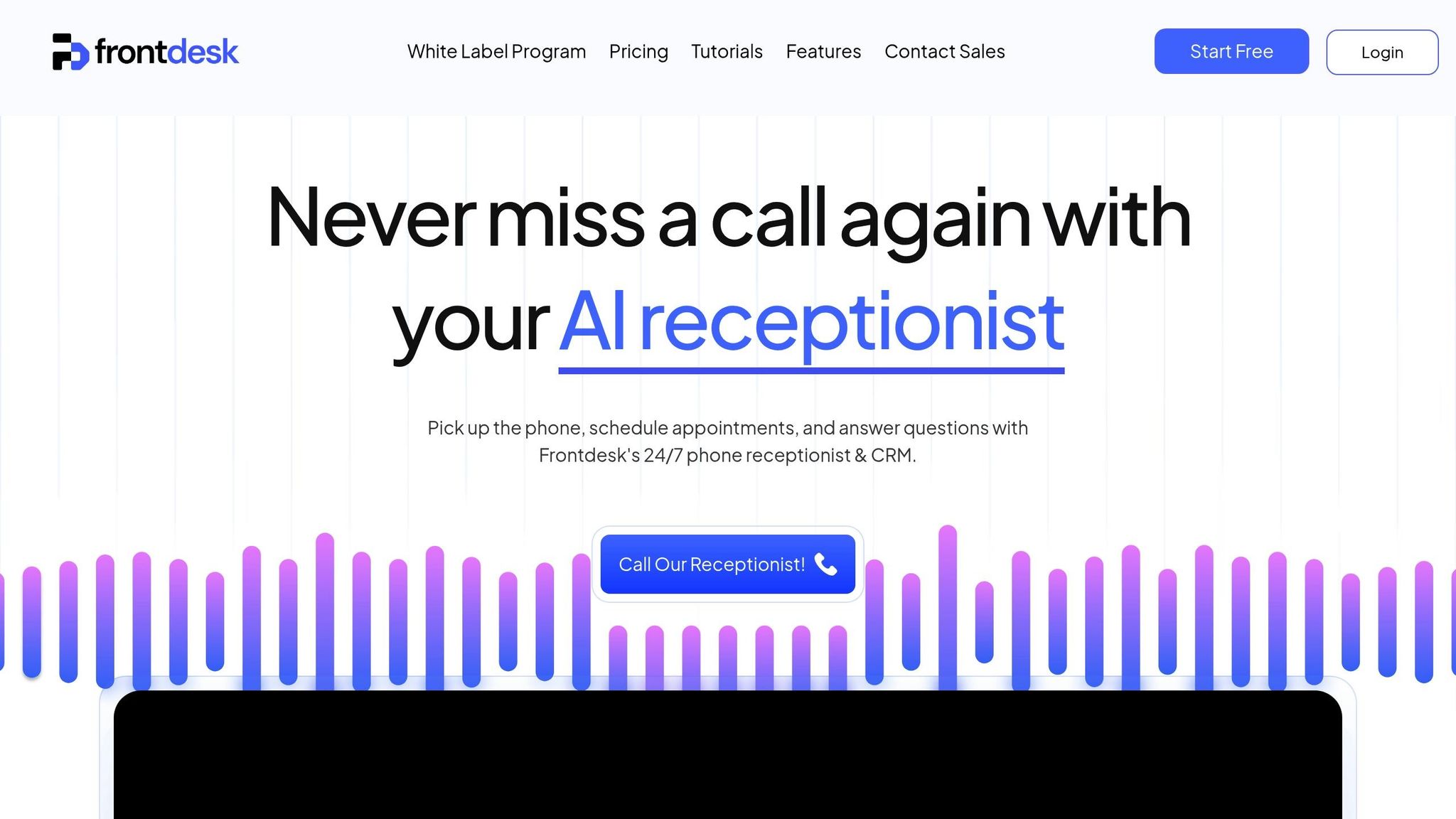Real-time dashboards are transforming hospitality management by providing live updates on operations, guest satisfaction, and revenue. They consolidate data from systems like property management, POS, and guest feedback platforms, enabling faster, data-driven decisions. Key benefits include:
Modern dashboards integrate technologies like cloud computing, APIs, and AI to deliver actionable insights. Features like predictive analytics, automated alerts, and mobile access ensure managers stay informed and proactive. Despite challenges like data integration and staff training, adopting these tools leads to better efficiency and profitability. Tools like My AI Front Desk even enhance decision-making by analyzing live guest interactions, automating workflows, and providing detailed reports.
The hospitality industry is moving fast. Real-time dashboards are no longer optional - they’re the key to staying competitive.

Modern hospitality dashboards bring together data from various sources and advanced technologies to offer a unified view of operations. By understanding their core components, hospitality managers can select tools that align with their needs and enhance decision-making. These dashboards act as a bridge between raw data and actionable insights, forming the backbone of operational strategies.
Effective dashboards gather data from multiple systems across a property or restaurant, providing a real-time, comprehensive view of operations.
By consolidating these diverse data streams, hospitality dashboards empower managers to make informed, timely decisions in a fast-paced environment.
The backbone of modern dashboards lies in the technologies that enable real-time data processing and visualization.
These technologies ensure that hospitality dashboards provide instant access to data and actionable insights, directly impacting efficiency and financial outcomes.
Beyond displaying data, modern dashboards are designed to drive proactive decision-making.
Research shows that real-time dashboards are transforming decision-making in the hospitality industry. By streamlining operations and improving financial performance, these tools empower properties to operate more efficiently and stay competitive. Properties using integrated dashboards benefit from smoother workflows and better coordination among service teams. Below, we'll dive into specific examples of how dashboards are making an impact in operations, financial management, and real-time strategy adjustments.
In day-to-day operations, dashboards bring together data from room statuses, housekeeping, maintenance, and guest services - all in real time. This centralized view allows managers to quickly spot and address issues, leading to faster check-ins and better service coordination. The result? Higher guest satisfaction scores that directly reflect the improved efficiency behind the scenes.
Dashboards also play a key role in financial decision-making. By providing dynamic insights into revenue and expenses, they help properties fine-tune pricing strategies based on market trends and occupancy rates. This ability to balance revenue opportunities with cost control is invaluable. Additionally, features like integrated expense tracking and inventory management help businesses keep a close eye on their bottom line, making it easier to adapt to financial challenges.
Perhaps the most powerful advantage of dashboards is their ability to support immediate adjustments. With access to live data on occupancy, staffing, and market conditions, managers can quickly tweak strategies. Whether it’s adjusting room rates, reallocating staff, or launching targeted promotions, this responsiveness ensures that operations stay aligned with current demand. This agility not only improves efficiency but also keeps guest satisfaction levels high.
The rise of real-time dashboards highlights the growing importance of data-driven decision-making in hospitality. By enabling continuous refinement of operations, these tools are helping businesses stay ahead in a highly competitive industry.
Tailored dashboards can cater to the specific needs of various hospitality sectors. Recent findings highlight the importance of a unified performance view, especially for multi-property operations. These operations, in particular, gain notable advantages from such an approach.
In multi-property settings, dashboards offer a bird's-eye view of an entire hotel portfolio. This allows for smarter pricing strategies and helps identify revenue opportunities across multiple locations. It also supports maintaining consistent service quality and streamlining resource management.
Implementing real-time dashboards comes with its share of challenges, but with the right strategies and an eye on emerging trends, these systems can transform hospitality operations.
One of the biggest obstacles is data integration. Hospitality businesses often rely on multiple systems - reservations, POS, housekeeping, and guest services - that need to work together seamlessly. Synchronizing these systems takes time, expertise, and careful planning.
Another challenge is staff resistance. Long-standing workflows can clash with new technologies, especially if training is inadequate or the interfaces are too complex. Without proper onboarding, employees may struggle to adapt.
For smaller properties, cost considerations can be daunting. Beyond the initial investment in software, there are ongoing costs like data storage, system maintenance, and staff training that need to be managed carefully.
Data quality issues can also derail even the most advanced dashboards. Inconsistent or outdated data can lead to inaccurate analytics, eroding trust in the system. When staff lose faith in the dashboard’s reliability, they may revert to manual processes, negating the benefits of automation.
Overcoming these challenges requires a thoughtful approach and adherence to proven best practices.
To make real-time dashboards work effectively, properties should consider these strategies:
The future of real-time dashboards is evolving rapidly, with cutting-edge technologies reshaping capabilities:

Traditional dashboards provide a snapshot of data, but My AI Front Desk takes it a step further by capturing live guest interactions. Every call, text, and inquiry feeds into its system, turning real-time engagement into actionable insights for better decision-making.
The platform’s analytics dashboard converts everyday guest communications into valuable business intelligence. Instead of waiting for end-of-day or monthly reports, managers can watch patterns unfold in real time - whether it’s peak calling hours, common guest questions, or booking conversion trends. This live data provides a foundation for making targeted improvements to operations.
The analytics dashboard tracks every guest interaction, offering detailed metrics like response times, outcomes, and behavior patterns. It analyzes call duration, peak activity times, and conversation topics, helping managers spot trends. For instance, if multiple guests inquire about pool hours in the evening, the system might suggest improving communication on the website or in pre-arrival emails.
Call recordings and transcriptions add another layer of insight, revealing recurring guest concerns and pinpointing areas for staff training. Shareable call links make it easy to review specific conversations for quality assurance or training purposes. Post-call notifications ensure urgent requests or VIP calls get immediate attention. All of these features integrate seamlessly with your existing systems, making the process efficient and streamlined.
My AI Front Desk connects with over 50 CRM systems and integrates with 9,000+ apps through Zapier, consolidating guest data and automating workflows in real time. For example, when a guest calls to book a room, the AI can update the property management system, send a confirmation email, and notify housekeeping - all without manual input. The Autopilot CRM feature takes it further by categorizing leads based on conversation content, automatically updating the CRM with notes, guest preferences, and follow-up tasks.
With API workflows, the system can interact with external applications during calls. Imagine a guest asking about room availability - My AI Front Desk can check availability and process the reservation instantly, ensuring a seamless experience for both staff and guests.
Custom reports provide insights into booking conversions, call handling times, and guest satisfaction. Intake form workflows collect specific details from callers based on predefined scenarios, ensuring inquiries - whether for weddings, corporate events, or other needs - are directed to the right departments quickly and efficiently.
Automated alerts and post-call webhooks deliver critical updates in real time. These alerts can turn potential issues into opportunities to improve guest experiences. Post-call webhooks also send detailed interaction data to external systems, integrating communication analytics with broader operational dashboards. This creates a comprehensive view of guest interactions alongside metrics like occupancy rates, revenue, and operational efficiency. Additionally, the platform’s link tracking feature monitors engagement with shared content, offering insights that help properties fine-tune marketing messages and adjust services to better align with guest preferences.
Real-time dashboards have become indispensable for hospitality businesses, enabling quick, data-driven decisions that directly boost profitability. The results speak for themselves: Marriott cut check-in times by 22%, improved staff productivity by 17%, increased guest satisfaction by 31%, and generated an impressive $287 million in additional revenue. Similarly, Four Seasons achieved a 28% higher RevPAR by leveraging AI-powered analytics.
These numbers highlight how real-time data can fundamentally reshape operations. Dashboards let businesses address staffing needs proactively, adjust pricing dynamically, and resolve issues immediately. By tracking guest interactions, identifying operational bottlenecks, and spotting revenue opportunities in real time, companies gain a competitive edge that enhances both guest satisfaction and financial performance.
Platforms like My AI Front Desk take this a step further by combining analytics, CRM, and automated workflows. For smaller hospitality businesses, this means turning every guest interaction - whether it’s a call, text, or inquiry - into actionable insights. The platform’s analytics dashboard, paired with seamless CRM integration and automation, provides the tools needed to make informed decisions that boost revenue and streamline operations.
The hospitality industry is evolving rapidly, with 42% of travel executives recognizing AI's role in creating personalized guest experiences. Properties that invest in real-time dashboard technology today are not just keeping up - they’re setting themselves up to meet future trends head-on. The question is: how quickly can you adopt these tools to start seeing the benefits?
Real-time dashboards give hospitality businesses a powerful tool to stay on top of their operations. They provide instant insights into crucial metrics like occupancy rates, revenue, and guest satisfaction scores. This means managers can spot trends, tackle problems as they arise, and adjust strategies to keep things running smoothly.
With access to up-to-the-minute data, these dashboards enable teams to make quick, informed decisions. Whether it’s allocating resources more effectively, improving the guest experience, or driving revenue, having actionable insights readily available helps professionals make choices that directly influence success.
Hospitality businesses often encounter obstacles when implementing real-time dashboards. These can include shifting away from traditional reporting methods, dealing with the complexity of integrating various systems, and managing issues like operational costs or staff shortages. Such challenges can make it tough to take full advantage of real-time data for informed decision-making.
To tackle these issues, businesses should prioritize establishing clear response protocols, investing in staff training, and utilizing advanced analytics tools that simplify both data integration and interpretation. By refining their processes and providing teams with the right tools and knowledge, hospitality businesses can tap into the full potential of real-time dashboards, ultimately enhancing guest experiences and boosting operational efficiency.
AI and IoT are transforming hospitality dashboards by providing real-time insights and automating essential processes. AI plays a crucial role in predictive analytics, allowing businesses to forecast trends, allocate resources wisely, and make informed decisions based on data. Meanwhile, IoT devices - like smart sensors and connected systems - constantly gather information on things like occupancy levels, room conditions, and equipment performance.
Together, these technologies enable proactive management. For instance, resources can be adjusted to match guest demand, or maintenance issues can be resolved before they turn into bigger problems. On top of that, they make it possible to deliver personalized guest experiences while simplifying operations. The result? Greater efficiency, higher revenues, and happier customers.
Start your free trial for My AI Front Desk today, it takes minutes to setup!








